Review the potential benefits, risks, and possible side effects.
Meet the Doctors

Dr. Ari Aal D.O
Medical Director
Dr. Ari Aal is a dedicated and innovative psychiatrist at Boulder Center for TMS, where he has been transforming the mental health landscape with his expertise and compassionate care. Dr. Aal served as Chief Resident during his residency and won several awards, including an award for scoring in the 99th percentile on the national psychiatry residency exam (PRITE). He also served on the board of the Colorado Psychiatric Society and completed a fellowship in Integrative Psychiatry.
Dr. Aal’s approach to psychiatry is rooted in understanding each patient’s unique needs and providing comprehensive care that addresses both the mind and body. His integrative psychiatry training allows him to incorporate various therapeutic modalities, including nutrition, mindfulness, nutraceuticals, and psychedelic therapy.
Patients appreciate Dr. Aal’s empathetic and thorough approach, as well as his dedication to staying at the forefront of psychiatric advancements. He is passionate about empowering patients on their journey to mental wellness and helping them achieve lasting, positive change.

Dr. Ari Aal D.O
Medical Director
Dr. Ari Aal is a dedicated and innovative psychiatrist at Boulder Center for TMS, where he has been transforming the mental health landscape with his expertise and compassionate care. Dr. Aal served as Chief Resident during his residency and won several awards, including an award for scoring in the 99th percentile on the national psychiatry residency exam (PRITE). He also served on the board of the Colorado Psychiatric Society and completed a fellowship in Integrative Psychiatry.
Dr. Aal’s approach to psychiatry is rooted in understanding each patient’s unique needs and providing comprehensive care that addresses both the mind and body. His integrative psychiatry training allows him to incorporate various therapeutic modalities, including nutrition, mindfulness, nutraceuticals, and psychedelic therapy.
Patients appreciate Dr. Aal’s empathetic and thorough approach, as well as his dedication to staying at the forefront of psychiatric advancements. He is passionate about empowering patients on their journey to mental wellness and helping them achieve lasting, positive change.

Rebecca C. Kass M.D.
Dr. Kass’s approach is about helping you rediscover your innate strength and resilience, paving the way for a life filled with purpose and well-being. Our first meeting is about truly understanding your unique story – not just your symptoms, but your hopes, fears, and dreams. Together, we’ll create a personalized treatment plan addressing immediate needs while building a foundation for lasting change.
My practice is grounded in the belief that healing happens by addressing the whole person. We’ll explore your concerns from multiple angles:
- Psychologically, with therapies like CBT, DBT, and ACT.
- Biologically, using medication, nutrition, sleep, and exercise.
- Socially, examining relationships and support.
- Spiritually, exploring meaning and purpose.
I offer a unique blend of traditional psychiatry and cutting-edge treatments. As a certified yoga instructor with training in Ayurvedic medicine, I also incorporate holistic practices into your care when appropriate. Don’t let another day go by feeling disconnected from your true self.
Reach out today to schedule a consultation.
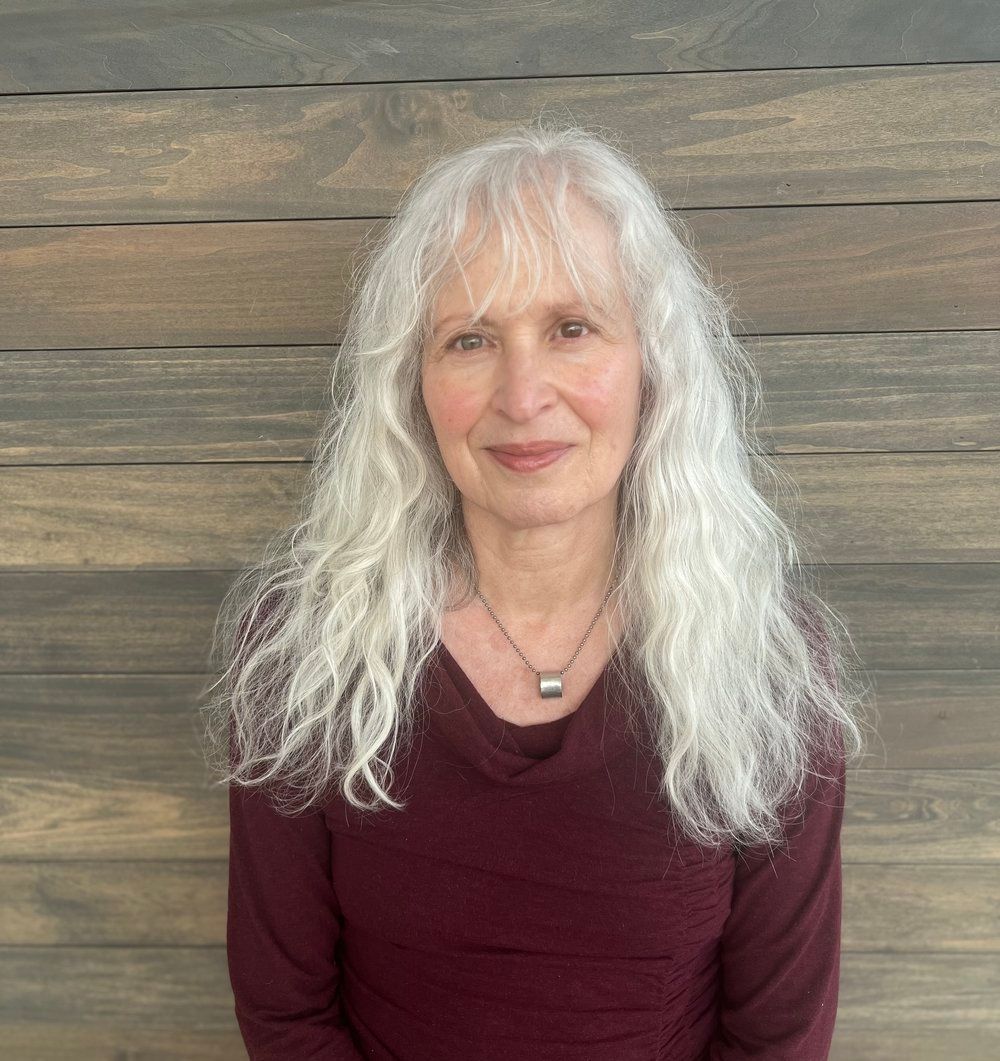
Laure Liverman, MSN, PMHNP-BC
Laure Liverman, MSN, PMHNP-BC, is a dedicated psychiatric nurse practitioner with a compassionate, integrative approach to mental health care. She started her nurse practitioner training at Massachusetts General Hospital, the teaching hospital for Harvard Medical School. With over two decades of experience across diverse healthcare settings, Laure brings a unique perspective shaped by her advanced studies in psychotherapy and integrative medicine. She is committed to treating each patient as a whole person, considering their mental, physical, and emotional well-being. Laure’s extensive background in acupuncture, herbal medicine, psychopharmacology and therapy enhances her ability to support patients in achieving balanced mental health and lasting wellness.

Kristina Meginley, MSN, PMHNP
Kristina Meginley, MSN, PMHNP, is a board-certified Psychiatric Mental Health Nurse Practitioner with experience providing comprehensive care to adults facing a wide range of mental health challenges. She is skilled in diagnosing and treating conditions such as depression, anxiety, bipolar disorder, schizophrenia, and OCD, and also has expertise in supporting individuals with co-occurring substance use concerns through evidence-based treatment and medication management.

Rebecca C. Kass M.D
Dr. Kass’s approach is about helping you rediscover your innate strength and resilience, paving the way for a life filled with purpose and well-being. Our first meeting is about truly understanding your unique story – not just your symptoms, but your hopes, fears, and dreams. Together, we’ll create a personalized treatment plan addressing immediate needs while building a foundation for lasting change.
My approach is about helping you rediscover your innate strength and resilience, paving the way for a life filled with purpose and well-being. Our first meeting is about truly understanding your unique story – not just your symptoms, but your hopes, fears, and dreams. Together, we’ll create a personalized treatment plan addressing immediate needs while building a foundation for lasting change.
My practice is grounded in the belief that healing happens by addressing the whole person. We’ll explore your concerns from multiple angles:
- Psychologically, with therapies like CBT, DBT, and ACT.
- Biologically, using medication, nutrition, sleep, and exercise.
- Socially, examining relationships and support.
- Spiritually, exploring meaning and purpose.
I offer a unique blend of traditional psychiatry and cutting-edge treatments. As a certified yoga instructor with training in Ayurvedic medicine, I also incorporate holistic practices into your care when appropriate. Don’t let another day go by feeling disconnected from your true self.
Reach out today to schedule a consultation.

Richard Suddath M.D
Founder & Executive Consultant
Dr. Suddath received his medical degree from the University of Virginia School of Medicine, and Community Medicine Internship and Psychiatric Residency degree from the University of Colorado Health Sciences Center, where he served as a Chief Resident. He is certified by the American Board of Psychiatry and Neurology, and was named an Honorary Fellow to the Academy of Academic Psychiatry. Following residency, he served as a Senior Medical Staff Fellow at the National Institute of Mental Health, in the Neuropsychiatry Branch, and focused research efforts in magnetic resonance brain imaging. This research, in collaboration with Dr. Daniel Weinberger and colleagues, was published as a lead article in the New England Journal of Medicine in 1990. Dr. Suddath has published articles in other leading journals including the Archives of General Psychiatry and the American Journal of Psychiatry.
Dr. Suddath has been honored as a past recipient of the Top Doctor Award by 5280. He has continued research activities through collaborations with Dr. David Miklowitz and colleagues in NIMH sponsored studies in family-focused therapy in the treatment of bipolar disorder. Dr. Suddath serves as a consultant for the Sutherland Center for the Treatment of Bipolar Disorder, and provides psychiatric consultations for patients with complex mood and anxiety disorders. Dr. Suddath taught a graduate level psychopharmacology course at the University of Colorado. In addition to these academic endeavors, Dr. Suddath's main interest has been in the treatment of psychiatric disorders, and he enjoys clinical collaboration with other professionals. He serves on the medical staff of Boulder Community Hospital and Avista Hospital, and is a member of the Boulder Psychotherapy Guild, the American Psychiatric Association and the American Association for Neuropsychiatry.

Richard Suddath M.D
Founder & Executive Consultant
Dr. Suddath received his medical degree from the University of Virginia School of Medicine, and Community Medicine Internship and Psychiatric Residency degree from the University of Colorado Health Sciences Center, where he served as a Chief Resident. He is certified by the American Board of Psychiatry and Neurology, and was named an Honorary Fellow to the Academy of Academic Psychiatry. Following residency, he served as a Senior Medical Staff Fellow at the National Institute of Mental Health, in the Neuropsychiatry Branch, and focused research efforts in magnetic resonance brain imaging. This research, in collaboration with Dr. Daniel Weinberger and colleagues, was published as a lead article in the New England Journal of Medicine in 1990. Dr. Suddath has published articles in other leading journals including the Archives of General Psychiatry and the American Journal of Psychiatry.
Dr. Suddath has been honored as a past recipient of the Top Doctor Award by 5280. He has continued research activities through collaborations with Dr. David Miklowitz and colleagues in NIMH sponsored studies in family-focused therapy in the treatment of bipolar disorder. Dr. Suddath serves as a consultant for the Sutherland Center for the Treatment of Bipolar Disorder, and provides psychiatric consultations for patients with complex mood and anxiety disorders. Dr. Suddath taught a graduate level psychopharmacology course at the University of Colorado. In addition to these academic endeavors, Dr. Suddath's main interest has been in the treatment of psychiatric disorders, and he enjoys clinical collaboration with other professionals. He serves on the medical staff of Boulder Community Hospital and Avista Hospital, and is a member of the Boulder Psychotherapy Guild, the American Psychiatric Association and the American Association for Neuropsychiatry.
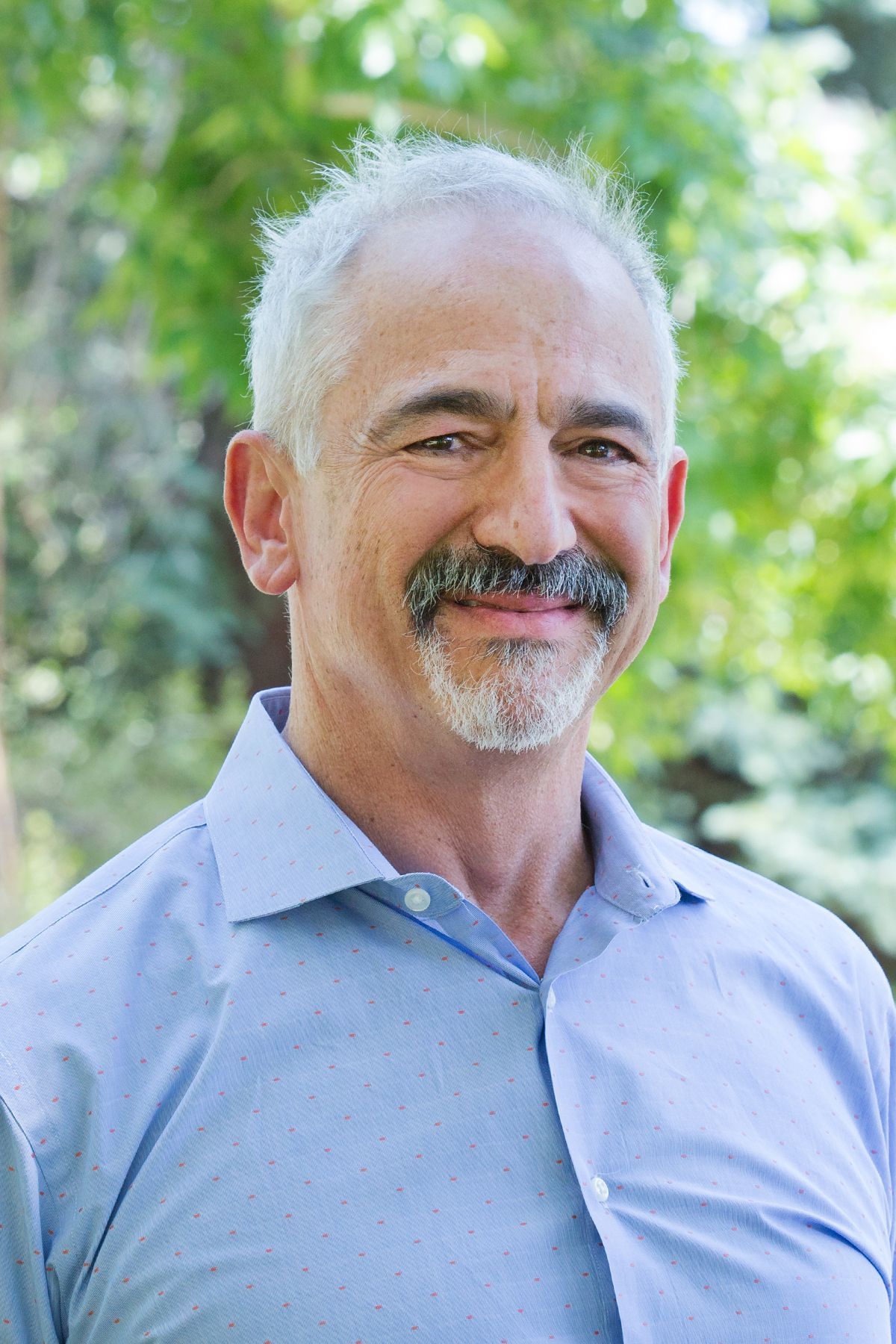
Earle Shugerman M.D
Founder & Executive Consultant
Dr. Shugerman is a graduate of Duke University School of Medicine, where he was elected to the AOA Medical Honor Society. His psychiatric residency was at the University of Colorado Health Sciences Center. He has served as Medical Director for the Jefferson Center for Mental Health, and for the Behavioral Health Inpatient program at Boulder Community Hospital. He is the Medical Director of neuroAgility, PC. He has been in private practice in Boulder, Colorado since 1989. Dr. Shugerman is board-certified in psychiatry. He is a member of iSNR, AAPB, and the American Psychiatric Association.
Dr. Shugerman carefully incorporates advances in psychiatric medicine, selected nutritional supplements when appropriate, and has a willingness to work with effective alternative approaches to achieve health and wellness with his patients. He has worked extensively with treatment-resistant mood disorders, attentional disorders, and complex psychiatric comorbidities throughout his career.
"Treatment here was a game-changer for me. I feel like my overall mood has improved on a daily basis, and there's been notable differences in my focus at work. It's pretty incredible, actually. The staff was great as well. Highly recommend this clinic for anyone seeking TMS."
Ryan Cwynar
More Rescources
Does TMS require sedation?
Learn More →TMS does not require sedation. All that is required is for the patient to sit still in the ergonomic treatment chair for the duration of treatment. Patients undergoing TMS therapy can return to their daily activities immediately following treatment.
Does insurance cover TMS therapy?
Learn More →Many insurance companies will cover a large portion of the cost of TMS treatment. At Boulder Center for TMS, we are often able to contract single-case agreements with insurance companies. This means that even if we are considered out of network by your insurance company, they will cover treatment at an in-network level. We research your insurance benefits for you and make sure you are aware of any out-of-pocket costs before beginning treatment so that you can make an informed decision based on your unique financial needs.
What are the common side effects of TMS?
Learn More →Unlike ECT (electroconvulsive therapy) where short-term confusion, memory loss, and long-term disruptions in memory have been shown to occur, TMS has little to no side effects. Some patients who undergo TMS therapy report headaches, fatigue, scalp soreness, or dizziness. However, these side effects are minor and tend to fade within the first week of treatment. The most serious side effect known side effect is seizure, though that only happens in roughly 1 in 200 patients. This is a very rare event that our staff is trained to handle.
Is TMS Therapy the same as Shock Therapy (ECT)?
No, the two procedures are very different. While both are effective in the treatment of depression, there are many differences in safety and tolerability. TMS is a non-invasive therapy that stimulates the activation of a patient’s brain with pulsed magnetic fields. During a session of TMS, patients will sit in a chair and are awake and alert throughout the entire 15-30 minute procedure – no sedation is used with TMS Therapy. Patients can transport themselves to and from treatment with ease. In contrast, "shock therapy", or electroconvulsive therapy (ECT), intentionally causes a seizure through the direct application of electrical current. Patients receiving ECT must be sedated with general anesthesia and paralyzed with muscle relaxants. Recovery from an ECT treatment session occurs slowly, and patients are usually closely monitored for minutes or even a few hours after a treatment.
Am I a good candidate for TMS?
Learn More →Our patients complete an initial evaluation appointment with our board-certified Psychiatrists to determine if TMS is a viable treatment option. During the appointment, we review your treatment and medication history. You will also have the opportunity to discuss your current medications and ask any remaining questions regarding treatment. This will help both you and the psychiatrists, to gauge if TMS is the right procedure for you.
Is TMS Right For You?
TMS is a safe, non-invasive, FDA-approved treatment that offers an effective alternative to medication. Take our 2-minute quiz to find out if TMS is the right option for you.
Take the quiz →

FDA-Approved
Treatment for depression and OCD.

Insurance Coverage
Major insurance providers cover TMS therapy
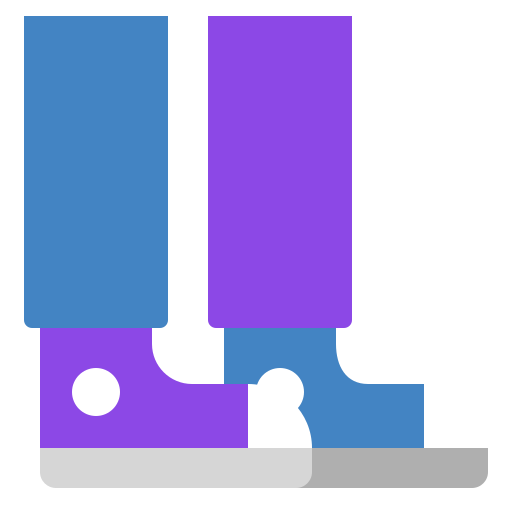
Outpatient
Receive treatment without disrupting your daily routine.

Holistic Care
Combine TMS with therapy or medication when needed.

Drug-Free Alternative
Alternative option to antidepressants.
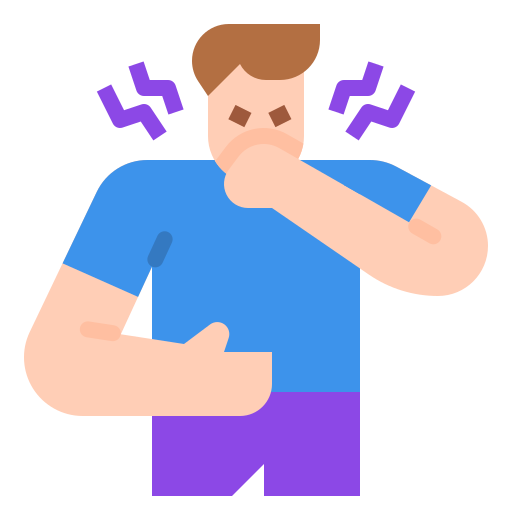
Minimal Side Effects
Safe and well-tolerated treatment option.
Your Free Consultation
Begin your TMS treatment journey today. Call
303-449-0318
or complete our simple online form.
Contact Us
We will get back to you as soon as possible.
Please try again later.
What Happens In My Consultation?


If we feel that other treatments are more likely to be effective, we will advise you of this.

In some cases, additional diagnostic testing will be recommended, such as hormone levels, other lab tests, sleep studies, or brain imaging.
What Makes Us Different?
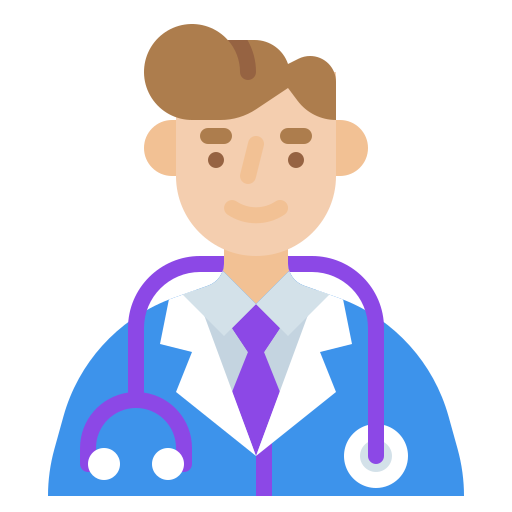
25 Years Combined Experience In TMS Treatment

FDA-Approved TMS Protocols, Ensuring Safe Treatment

Personalized Treatment Protocols Suit Your Specific Needs.

Integrate Therapy, Lifestyle Changes, & Medications.

Earle Shugerman M.D
Founder & Executive Consultant
Dr. Shugerman is a graduate of Duke University School of Medicine, where he was elected to the AOA Medical Honor Society. His psychiatric residency was at the University of Colorado Health Sciences Center. He has served as Medical Director for the Jefferson Center for Mental Health, and for the Behavioral Health Inpatient program at Boulder Community Hospital. He is the Medical Director of neuroAgility, PC. He has been in private practice in Boulder, Colorado since 1989. Dr. Shugerman is board-certified in psychiatry. He is a member of iSNR, AAPB, and the American Psychiatric Association.
Dr. Shugerman carefully incorporates advances in psychiatric medicine, selected nutritional supplements when appropriate, and has a willingness to work with effective alternative approaches to achieve health and wellness with his patients. He has worked extensively with treatment-resistant mood disorders, attentional disorders, and complex psychiatric comorbidities throughout his career.
"Treatment here was a game-changer for me. I feel like my overall mood has improved on a daily basis, and there's been notable differences in my focus at work. It's pretty incredible, actually. The staff was great as well. Highly recommend this clinic for anyone seeking TMS."
Ryan Cwynar
More Rescources
Does TMS require sedation?
Learn More →TMS does not require sedation. All that is required is for the patient to sit still in the ergonomic treatment chair for the duration of treatment. Patients undergoing TMS therapy can return to their daily activities immediately following treatment.
Does insurance cover TMS therapy?
Learn More →Many insurance companies will cover a large portion of the cost of TMS treatment. At Boulder Center for TMS, we are often able to contract single-case agreements with insurance companies. This means that even if we are considered out of network by your insurance company, they will cover treatment at an in-network level. We research your insurance benefits for you and make sure you are aware of any out-of-pocket costs before beginning treatment so that you can make an informed decision based on your unique financial needs.
What are the common side effects of TMS?
Learn More →Unlike ECT (electroconvulsive therapy) where short-term confusion, memory loss, and long-term disruptions in memory have been shown to occur, TMS has little to no side effects. Some patients who undergo TMS therapy report headaches, fatigue, scalp soreness, or dizziness. However, these side effects are minor and tend to fade within the first week of treatment. The most serious side effect known side effect is seizure, though that only happens in roughly 1 in 200 patients. This is a very rare event that our staff is trained to handle.
Is TMS Therapy the same as Shock Therapy (ECT)?
No, the two procedures are very different. While both are effective in the treatment of depression, there are many differences in safety and tolerability. TMS is a non-invasive therapy that stimulates the activation of a patient’s brain with pulsed magnetic fields. During a session of TMS, patients will sit in a chair and are awake and alert throughout the entire 15-30 minute procedure – no sedation is used with TMS Therapy. Patients can transport themselves to and from treatment with ease. In contrast, "shock therapy", or electroconvulsive therapy (ECT), intentionally causes a seizure through the direct application of electrical current. Patients receiving ECT must be sedated with general anesthesia and paralyzed with muscle relaxants. Recovery from an ECT treatment session occurs slowly, and patients are usually closely monitored for minutes or even a few hours after a treatment.
Am I a good candidate for TMS?
Learn More →Our patients complete an initial evaluation appointment with our board-certified Psychiatrists to determine if TMS is a viable treatment option. During the appointment, we review your treatment and medication history. You will also have the opportunity to discuss your current medications and ask any remaining questions regarding treatment. This will help both you and the psychiatrists, to gauge if TMS is the right procedure for you.
Is TMS Right For You?
TMS is a safe, non-invasive, FDA-approved treatment that offers an effective alternative to medication. Take our 2-minute quiz to find out if TMS is the right option for you.
Take the quiz →

FDA-Approved
Treatment for depression and OCD.

Insurance Coverage
Major insurance providers cover TMS therapy

Outpatient
Receive treatment without disrupting your daily routine.

Holistic Care
Combine TMS with therapy or medication when needed.

Drug-Free Alternative
Alternative option to antidepressants.

Minimal Side Effects
Safe and well-tolerated treatment option
Your Free Consultation
Begin your TMS treatment journey today. Call
303-449-0318
or complete our simple online form.
Contact Us
We will get back to you as soon as possible.
Please try again later.
What Happens In My Consultation?

Review the potential benefits, risks, and possible side effects.

If we feel that other treatments are more likely to be effective, we will advise you of this.

In some cases, additional diagnostic testing will be recommended, such as hormone levels, other lab tests, sleep studies, or brain imaging.
What Makes Us Different?

25 Years Combined Experience In TMS Treatment

FDA-Approved TMS Protocols, Ensuring Safe Treatment

Personalized Treatment Protocols Suit Your Specific Needs.

Integrate Therapy, Lifestyle Changes, & Medications.
Your Free Consultation
Begin your TMS treatment journey today. Call
303-449-0318
or complete our simple online form.
Contact Us
We will get back to you as soon as possible.
Please try again later.
What Happens In My Consultation?

Review the potential benefits, risks, and possible side effects.

If we feel that other treatments are more likely to be effective, we will advise you of this.

In some cases, additional diagnostic testing will be recommended, such as hormone levels, other lab tests, sleep studies, or brain imaging.
What Makes Us Different?

25 Years Combined Experience In TMS Treatment

FDA-Approved TMS Protocols, Ensuring Safe Treatment

Personalized Treatment Protocols Suit Your Specific Needs.

Integrate Therapy, Lifestyle Changes, & Medications.







